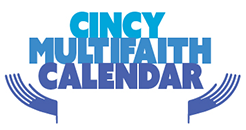The Things that Can destroy America: Trump’s Actions towards Immigrants & Refugees
“ The things that will destroy America are prosperity at any price, peace at any price, safety first instead of duty first and love of soft living and the get-rich-quick theory of life.” Theodore Roosevelt
The recent actions by President Trump and his executive order towards immigrants and refugees have sparked faith organizations to take action. No only action, but collaborative action. Why? Because it is a part of our common faith. As a mother and youth minister, it is my job to welcome the child who has felt isolated, left out, and need of friendship. It is my job to build a home and community. It is my job to teach my students and my children to be that person who may have to stand up at times to defend the weak, give voice to the voiceless and to break down barriers to build a stronger community. From the scriptures that I love, defend and teach to my youth, I find consistent and repeated passages welcoming the stranger.
”Do not neglect to show hospitality to strangers, for thereby some have entertained angels unawares.” (Heb 13:2)
“Therefore welcome one another as Christ has welcomed you, for the glory of God.” (Romans 15:7)
“For I was hungry and you gave me food, I was thirsty and you gave me drink, I was a stranger and you welcomed me.” (Matt 25:32)
“When a stranger sojourns with you in your land, you shall not do him wrong. You shall treat the stranger who sojourns with you as the native among you, and you shall love him as yourself, for you were strangers in the land of Egypt: I am the Lord your God.” (Lev 19:33-34)
As faithfilled citizens, we have a duty to our faith and our country. We do need to be on guard those things that can destroy American as Theodore Roosevelt warned us over 100 years ago. At what price are we trying to protect our borders, our peace and our wealth?
From Johnathan Sacks, The Home We Build Together, “What then is society? It is where we set aside all considerations of wealth and power and value people for what they are and what they give. It is where Jew and Christian, Muslim and Hindu, Buddhist and Sikh, can come together, bound by their commonalities, enlarged by their differences. It is where we join in civil conversation about the kind of society we wish to create for the sake of our grandchildren not yet born. It is where we share an overarching identity, a first language of citizenship, despite our different second languages of ethnicity or faith. It is where strangers can become friends. It is not a vehicle of salvation, but it is the most effective form yet devised for respectful coexistence. Society is the home we build together when we bring our several gifts to the common good.”
We all have the responsibility to build our common home and there are many ways of taking action from letter writing campaigns, Know Your Neighbor events, to establishing our churches as “sanctuaries.” There are several organizations working together, pledging to not allow American to be destroyed. Groups like Trilogue of Faith, AJC, Intercommunity Justice and Peace Center, CAIR, Christ Church Cathedral, Islamic Center of Cincinnati and many more are taking steps to build a better home for our country.















